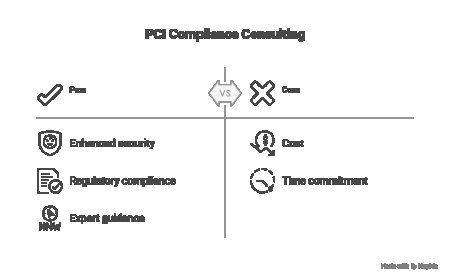How can I get a high score in the IELTS?
How can I get a high score in the IELTS? Master strategies, practice tips, and key skills to boost your band.

Introduction
Scoring high on the IELTS (International English Language Testing System) exam can open doors to global education, work, and migration opportunities. But for many, the road to a high band score can feel overwhelming. Whether you're aiming for a Band 7, 8, or higher, success doesnt rely on luckit requires the right preparation strategy, consistent practice, and understanding how the test is evaluated. In this article, well walk you through proven tips, section-specific strategies, and actionable habits that can help you confidently boost your IELTS score, regardless of your starting level.
Understand the IELTS Format First
Before diving into preparation, you need a clear understanding of the exam format. The IELTS has four sections:
-
Listening 30 minutes (plus 10 minutes to transfer answers)
-
Reading 60 minutes
-
Writing 60 minutes
-
Speaking 1114 minutes (face-to-face interview)
There are two test types: Academic (for higher education) and General Training (for work or migration). Most of the tips in this article apply to both.
Set a Clear Target Band Score
Each institution or country may require a different band score. Know your goal before you start preparing.
|
Purpose |
Recommended Band |
|
Undergraduate study |
6.06.5 |
|
Postgraduate study |
6.57.5 |
|
Skilled migration |
7.0+ |
|
Work visa |
6.07.0 |
Knowing your target helps you plan better and focus on your weak areas.
Boost Your Vocabulary and Grammar
Strong vocabulary and grammar are essential across all four modules.
How to improve:
-
Learn topic-specific vocabulary (e.g., health, education, environment)
-
Practice collocations and idioms (e.g., make a decision, over the moon)
-
Use grammar apps like Grammarly, Cambridge Grammar, or British Council practice tools
Tips:
-
Keep a vocabulary notebook
-
Learn synonyms and paraphrasing techniques
-
Avoid basic repetition (e.g., using very good repeatedly)
Listening Tips to Score High
The Listening section has four recordings with increasing difficulty.
Strategies:
-
Practice with British, Australian, and Canadian accents
-
Learn to predict answers before listening
-
Pay attention to keywords and signposts like "however," "on the other hand," or "finally"
-
Dont leave blanks; guess if unsure
Practice resources:
-
IELTS Liz
-
BBC Learning English
-
Podcasts (TED Talks, 6-Minute English)
Reading Tips for Accuracy and Speed
The Reading section tests comprehension under time pressure.
Techniques:
-
Practice scanning for names, numbers, and keywords
-
Use skimming to get the main idea of each paragraph
-
Understand question types: matching headings, multiple choice, true/false/not given
-
Dont get stuckmove on and come back if needed
Common mistake:
-
Spending too much time reading the full passage. Instead, read questions first.
Writing Tips for Band 7+
Writing is often the most difficult section for test-takers. There are two tasks:
-
Task 1: Describe a graph, chart, or letter (150 words)
-
Task 2: Write an essay (250 words)
Tips to excel:
-
Structure your essay clearly: Introduction, Body Paragraphs, Conclusion
-
Use formal language (avoid contractions like cant, use cannot)
-
Support opinions with examples
-
Avoid repeating the same wordsuse synonyms and paraphrasing
Task 2 Example:
Question: Some people think the government should fund public health, while others believe individuals should take responsibility for their health. Discuss both views and give your opinion.
Structure your response:
-
Introduce both views
-
Discuss each with examples
-
Give your opinion with a reason
Speaking Tips to Sound Confident
The Speaking section is a live conversation with an examiner.
Structure:
-
Part 1: Personal questions (45 minutes)
-
Part 2: Short speech (12 minutes)
-
Part 3: Discussion (45 minutes)
Tips:
-
Practice thinking aloud to develop fluency
-
Use a range of tenses and vocabulary
-
Record yourself and listen for areas to improve
-
Speak clearly and naturally, not too fast
-
Dont memorize answersit sounds robotic
Bonus Tip: Smile and treat it like a casual conversation.
Mock Tests and Practice Under Exam Conditions
Regular practice under test conditions is the best way to improve.
How to practice:
-
Time yourself strictly
-
Dont pause or replay audio during listening
-
Use sample answer sheets
-
Analyze your mistakes and fix them
Take at least 23 full-length mock tests weekly during the final month before the exam.
Take Care of Your Health and Mindset
Dont underestimate the impact of your mental and physical state.
Preparation checklist:
-
Sleep well before exam day
-
Eat light before your test
-
Carry your ID and arrive early
-
Practice deep breathing to stay calm
-
Visualize successit works!
Conclusion
Achieving a high score in IELTS institute in Chandigarh isnt about perfectionits about preparation. By building a strong vocabulary, mastering test strategies, and practicing consistently, you can boost your confidence and performance. Remember, improvement takes time, so stay patient and focused. With the right mindset and tools, that high band score is completely within your reach.
FAQs
Q1: How many hours a day should I study for IELTS?
12 hours daily for 23 months is ideal, but it depends on your starting level.
Q2: Is it better to take Academic or General Training?
It depends on your goal. Academic is for study; General is for work or migration.
Q3: How is the IELTS score calculated?
Each section (Listening, Reading, Writing, Speaking) is scored out of 9. The average is your overall band score.
Q4: Can I take IELTS from home?
Yes, IELTS offers a computer-based test called IELTS Online in many countries.
Q5: Whats the best way to improve IELTS writing?
Write regularly, get feedback, study sample essays, and focus on vocabulary and structure.








































